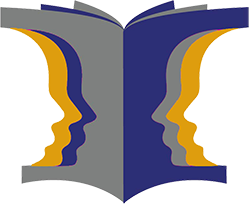
Healthcare
Welcome to our group, one dedicated to the healthcare professionals around our world, the support... View more
Technology is disrupting human circadian rhythms and robbing us of sleep
-
Technology is disrupting human circadian rhythms and robbing us of sleep
With smartphones seemingly ubiquitous in the industrialised world, sleep researchers have confirmed what many already suspected – technology is disrupting human sleep in ways we still don’t fully understand.
Humans, along with plants, fungi, and animals, possess what is known as a circadian rhythm, the internal clock that regulates our sleep-wake cycle.
As far as scientists can tell, the majority of this rhythm is maintained by the hypothalamus which releases the sleep hormone melatonin and is highly responsive to changes in ambient light, especially around dawn and dusk.
However, artificial light can impact the dynamics of the hypothalamus, and increased exposure to blue light from electronic devices like smartphones, laptops and certain kinds of ereaders is having a gradual impact on modern humans’ near 24-hour intrinsic sleep rhythm.
“Light is mainly doing two things to the clock. It is setting the time of the clock and it is changing the amplitude or strength of the clock,” says professor Jamie Zeitzer from Stanford University.
A growing body of research indicates that artificial light can suppress melatonin production in humans, thereby disrupting the natural inclination to sleep at the end of the day, often lengthening the time it takes to drift off to sleep.
“There is evidence that 1.5 hours (or more) of bright screen use reduces the natural nighttime increase in melatonin, and this effect may compound over multiple nights,” says Dr Cele Richardson from Western Australia University.
Previous studies have found that pre-sleep activity can impact the length of time required to fall asleep. One 2014 study compared e-book versus printed book readers and found that the latter group fell asleep up to 10 minutes earlier.
A separate study examined the impact of blue light filter products and found that users fell asleep up to four minutes earlier than non-users.
However, another complicating factor is that those who have trouble falling asleep are more likely to use technology to entertain themselves as they lie awake and struggle to fall asleep, in a kind of negative feedback loop which deprives them of yet more sleep overall.
“A bi-directional relationship between technology use and sleep is likely. That is, technology use may affect sleep over time, yet individuals who have trouble sleeping may subsequently increase their technology use,” Richardson added.
The precise impact of artificial light on our still somewhat mysterious sleep cycle remains unknown but the growing scientific consensus is that technology is having a negative influence on our collective ability to get a good night’s sleep.
Sorry, there were no replies found.
Log in to reply.
